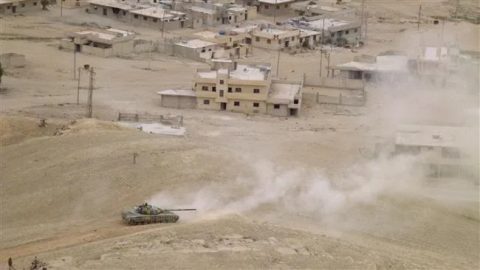Author of the popular book ‘The Almond Tree’ interacted with Spectralhues regarding her book her personal life has inspired, the things she learned from celebrated authors, Mr Khaled Hosseini and Mr Jamal Kanj. While speaking about the reviews she has received, she takes on Ms Susan Abulhawa’s review of The Almond Tree, which she says is “libelous and factually inaccurate”.
You seem like a free spirit, was it difficult to be brought up in a conservative household?
It was an impossible situation. I was the oldest of four and the only daughter from a small city in Upstate New York. My parents made me work bagging groceries after school and all weekend to try and keep me busy. I felt suffocated. Then I went on a school trip to Italy and Greece when I was sixteen. It was the first time I saw the world and was determined to see more. I proposed to my parents that I study in Paris that summer, but they rejected my idea. Instead, they said I could go to Israel and study Judaism and Hebrew with our rabbi’s daughter. Desperate for freedom and fun, I went.
Has your personal life inspired your book in anyway?
I didn’t become a writer because I wanted to tell stories. I became a writer because I had a story to tell. I went to Israel for freedom and fun. I discovered a truth I wasn’t looking for. I couldn’t forget what my eyes saw. When I returned to the US to attend graduate school at Harvard after living in Israel for 7 years, I tried to tell everyone what I had seen, but no one cared. I didn’t know how to reach people. What I witnessed had to be stopped. I almost gave up until I read TheKite Runner and realized a book can touch hearts and minds and change them.
I had a hard time figuring out how to write what I witnessed and learned. I wanted the reader to step into my shoes and see the situation through my eyes. But I had only witnessed personally a portion of the conflict. Much of the rest of the story was told to me by a Palestinian friend with Israeli citizenship I met at college in Jerusalem – Ahmad Abu Hussein. We met on the first day of classes and became best friends. So in order to tell the entire story, I became a Palestinian Muslim male and told the story from his pov. When I was living there, Ahmad could never have written the truth with the freedom I wrote.
Tell us a bit about your book.
The Almond Tree is the story about a Palestinian Muslim boy who grew up in Israel and how he makes it against all odds.

Have people objected to your book because the world is pretty aware about the Israeli-Palestinian conflict?
Fortunately, I had very few objectors on both sides. The Times of Israel, which isn’t even a left wing newspaper, said “Although possibly difficult for Israelis and Jews everywhere to read, The Almond Tree should be required reading for all as when there is understanding of the other side, peace can be achieved.” I have had rave reviews from Palestinians, Jews, Arabs and Muslims worldwide except this one American of Palestinian descent, Susan Abulhawa. She wrote this libelous and factually inaccurate review of my book that said I was a white supremacist, orientalist, distorter or Palestinian legacy. A criminal and on and on that was published in Aljazeera. Even she admitted that her and her crony Vacy’s reviews were the lone negative reviews in a sea of praise.
In a rape, the competent confession of the perpetrator is a conviction. I lived in Israel for 7 years. I studied Middle Eastern studies for nearly a decade and I’m Jewish. A statement against perceived interest like mine carries weight unless, however, the perceived victim claims my confession is a lie. That is what Susan tried to do. Then she used Zionist tactics to block my rebuttal and blind allegiance to get people to believe her.
Luckily for me, my best friend from college, Ahmad Abu Hussein, who I had lost touch with for the last twenty years must have done a search of my name and read Susan’s review. He immediately read my novel and was outraged because I accurately depicted the Palestinians in the Triangle. Susan Abulhawa’s review of my book was based on lies and fabricated facts. It’s worth reading Ahmad’s rebuttal to her review which Aljazeera refused to publish. Even when Ahmad confronted Susan about her factually inaccurate and libelous review of my book, she refused to retract her lies.
As my book accurately portrayed the Palestinian reality in the Triangle (I might add Susan didn’t even know where the Triangle was), by attacking The Almond Tree, Susan mocked, distorted and destroyed the legacy of millions of Palestinians who live and have lived since 1948 inside Israel. In my opinion, that woman is driven by jealousy and greed. The Huffington Post predicted The Almond Tree would become one of the bestsellers of the decade. For anyone interested in shining a light on the plight of the Palestinians, that would be good news considering the author of the Huffington Post article said for Americans to step into Palestinian shoes, it would take a miracle and that miracle was happening thanks to The Almond Tree.
Susan wrote something to the effect of sadly, The Almond Tree will probably become one of the bestsellers of the decade. She makes her living off Palestinian suffering from the comforts of her home in the US, so, in my opinion, I clearly posed a threat to her desire for fame and fortune. Another issue was that Susan, and her crony Vacy, claimed that my protagonist was a collaborator because his weapon of choice was an education and not the armed struggle. The characters in my book are composed from compilations of my friends’ true stories. They are real people to me. All my Palestinian friends in Israel attended Israeli universities. So, I was happy when Ahmad addressed the collaborator issue in this article.
Do you think there is a solution to end the conflict between Israel and Palestine?
Of course. We need to learn to work together to advance humanity instead of focusing on differences and destroying each other. Differences should be celebrated, not used to divide people. The solution could be some form of one or two state solution.
How has Khaled Hosseini inspired you?
He was a doctor and managed to write a book that allowed westerners to step into the shoes of an Afghan boy and see the world through his eyes. From him, I learned that anyone can tell a story and he showed me how to open up the east to western eyes.
Do you read your reviews? Do you respond to them, good or bad? Do you have any advice on how to deal with the bad?
I do read a lot of reviews. I never respond to them except Susan Abulhawa’s because she portrays herself as a subject matter expert and authority on the Palestinians and is a well-known activist. She attempted to discredit me based on lies and made libelous claims against me. She abused the trust of those who look up to her. And because I accurately depicted a Palestinian’s life in the Triangle, she mocked, distorted and destroyed their legacy. The Almond Tree was being taught in high schools and universities in the US and it was opening hearts and minds to the Palestinians and showing a better way. She tried to sabotage that. I was put in a situation where I had to defend myself against her accusations about the accuracy of my story. In that situation, when someone abused a position of power and trust and tried to destroy my credibility and the legacy of millions of Palestinians whose suffering I personally witnessed, I felt I could not remain silent.
Is there any author that you particularly look up to?
Jamal Kanj. He is a Palestinian refugee who grew up in Lebanon. He’s similar to my protagonist in The Almond Tree in that he made it against all odds. He went to college in the US and became an engineer. But at the same time, he never forgot where he came from or the people he left behind. He has been active in creating awareness for the plight of the Palestinians. In college, while he lived on next to nothing, he helped found Palestinian student unions throughout the US. He wrote a memoir about growing up in a refugee camp and has a column in Gulf News where he writes about issues pertaining to the Arab world. He reviewed The Almond Tree in his column and we became friends. Together, we just finished writing two novels.
I had only met Palestinians from Israel. I had never met a Palestinian who grew up in a refugee camp. He’s been an inspiration for me because he’s never forgotten where he came from or those he left behind. His writing is driven by his desire for justice and peace and not fame and fortune. And he had the ability to not only work with me, but to develop a true and trusting friendship with me despite everything my people have done to him personally and his people.
How emotionally invested were you while writing the book?
It was like reliving my worst nightmares that wouldn’t stop haunting me. At the same time, I was so thrilled that I had finally found a way to show people what I witnessed. It took me 7 years to write The Almond Tree and I could not have been more emotionally invested than I was. It was all consuming.
Any message for the other authors out there?
Don’t give up. I could have wallpapered my entire house with all the rejection letters I received. A rejection is just a way of telling the author that either the right match still hasn’t been found or there’s still room for improvement.
Tags: author interview Interview Michelle Cohen Corasant The Almond Tree








